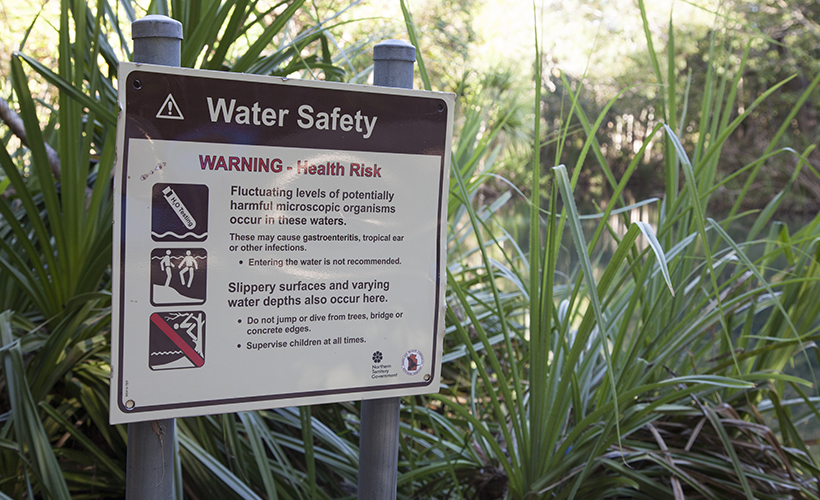
School and public holidays are a time for relaxation, enjoyment and fun. However, we can’t be complacent when it comes to water safety. While on holidays, adults can end up drinking more, and children and younger people spend more time swimming and recreating in pools and other bodies of water.
Many of us travel for holidays, often to unfamiliar areas or places where we haven’t visited for some time, which can increase the risk of drowning. To enjoy the water safely, it is important to know the safety aspects that apply to different aquatic environments, whether it is a swimming pool, beach, lake, river or dam.
Always read the safety signs, swim at a patrolled beach between the red and yellow flags, check the local weather and water conditions, avoid alcohol around water and always keep watch of children when around water.
How to Stay Safe
Steps to swim safe if holidaying in an unfamiliar location
- Check conditions with a local person or lifeguard
- Look for signs warning of any hazards in or around the water
- Swim at patrolled beach between the red and yellow flags
- Conditions can change all the time. To find a safe spot to swim, first observe the conditions before entering the water
- Look for rip currents or any rapid movement of the water
- Never dive in, always enter feet first
- Keep watch of children in and around the water
Keeping the family safe
Supervise children at all times and discuss with children that they are not allowed to enter the water without a parent or adult present. Explain that even though they may be good swimmers, the conditions can change very quickly in unknown places.
When using equipment:
- Check condition of all equipment before use e.g. boats and watercraft
- Wear a lifejacket when boating, using watercraft such as kayaks/canoes and when rock fishing
- Observe changing weather conditions
- Watch out for people or watercraft
- Avoid alcohol and taking drugs when around the water
Further information
Drowning Risk on Public Holidays in Australia
